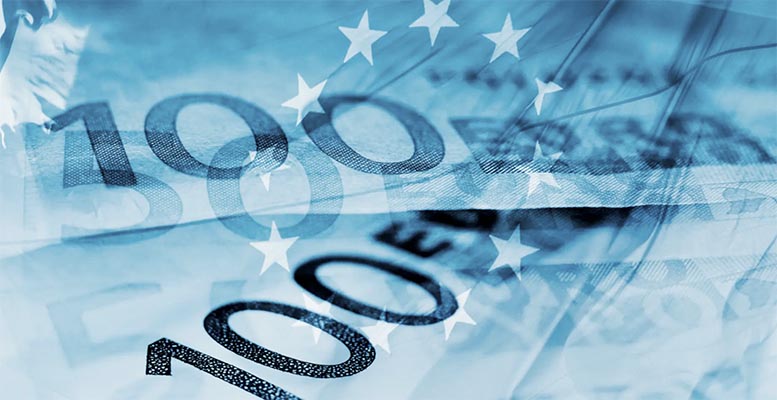Scope Ratings | The EU’s forceful crisis-response will increase supply of highly rated euro-denominated government and supranational bonds, which could weaken the sovereign-banking nexus and bolster the euro’s international role.
The European fiscal response to the Covid-19 crisis – including national and EU-wide counter-cyclical fiscal stimulus – will increase the availability of euro-denominated safe assets in coming years by almost EUR 2.5trn, an increase of about 50%.
We expect the combined national and European fiscal response to the Covid-19 shock to increase the availability of highly rated euro-denominated securities from around EUR 5trn in 2019 to almost €7.5trn by 2024.
The scarcity of euro-denominated safe assets particularly relative to the depth of the markets for US Treasuries and Japanese government bonds has been on the academic and political agenda since the global financial and sovereign debt crises.
The coming significant jump in issuance, which will result in higher public debt levels overall, may boost the euro’s credentials as a global reserve currency.
The two main drivers for the increase in euro-denominated safe assets are:
- An estimated increase in debt securities by highly rated sovereigns by around EUR 1.6trn, driven by France (AA/Stable; ~EUR 700bn) and Germany (AAA/Stable; ~EUR 600bn);
- Issuance at the supranational level, particularly from the European Commission, will increase significantly to fund the “Next Generation EU” recovery plan (€750bn) and the SURE unemployment scheme (EUR 100bn) over the coming years.
We expect much higher levels of public debt, albeit financed at lower cost, mostly driven by the ECB’s crisis response, which will result in greater interdependence between the ECB and euro area member states given the increasing share of sovereign bonds on the ECB’s balance sheet.
In addition, the greater supply of euro-denominated area safe assets, particularly those issued by the EU, could address some of the adverse effects resulting from the shortage of safe asset supply in the euro area, notably banks holding large portions of domestic sovereign bonds on their balance sheets, which could now diversify some of their sovereign bond holdings, possibly reducing the vicious so-called doom loop in sovereign debt crises.
However, the benefits should not be overstated at this stage as EU issuance amounts only to slightly above 5% of EU-27 GDP. Still, having a deeper pool of euro area safe assets may affect sovereign credit risk in various ways.
A sufficiently high supply of highly rated euro-denominated bonds would facilitate integration between the still-fragmented financial systems and ensure liquid markets for refinancing.
Implications of enhanced reserve currency status for euro area sovereigns include the prospect of more limited exchange-rate risks and reduced government borrowing costs, and thus the ability to increase spending without materially raising debt-sustainability concerns.





